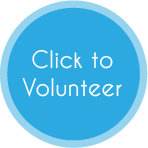Mutual Support Groups for Substance Use
Mutual Support Groups for Substance Use
Mutual support groups are groups composed of individuals who meet on a regular basis to help one another cope with a shared life problem. These can be beneficial and supportive to those who are wanting to achieve and/or maintain abstinence from substances, or have harm reduction goals, and to the loved ones of people with substance use issues. Currently, people in recovery have a choice of a wealth of in person and online meetings. Today, we’ll address what is available for Delta residents who are addressing their own substance use. The benefits of participating in these groups can include gaining support from others, accessing a community of recovering people, adopting a structured approach to recovery, and being free of charge.
The most available and widespread programs for achieving and maintaining abstinence from substances are the twelve step programs Alcoholics Anonymous and Narcotics Anonymous. Cocaine Anonymous is also available. Both in person and online groups can be accessed. These are spiritual programs, but not religious programs as such, so that people of all spiritual or non-spiritual backgrounds, including atheists and agnostics, can benefit from them. The definition of a “Higher Power” is left up to the individual, and can range from a traditional God concept to a simple faith that things can get better.
Alcoholics Anonymous is described on their website as “a fellowship of people who come together to solve their drinking problem. It doesn’t cost anything to attend A.A. meetings. There are no age or education requirements to participate. Membership is open to anyone who wants to do something about their drinking problem. A.A.’s primary purpose is to help alcoholics to achieve sobriety”. There are in person meetings in North Delta, Ladner, and Tsawwassen, as well as surrounding communities. Currently, there are nine in person weekly meetings in North Delta. There are five in Ladner, however, two of these groups meet daily and up to three times per day! Tsawwassen also has five in person groups, mostly at the Little House (5061 12th Avenue), and one meets four days per week, and is also available via Zoom.
Websites listing meetings locally and internationally are: www.vancouveraa.ca, and www.aa.org.
A.A. Central Office can be reached at (604)434-3933.
The Narcotics Anonymous website describes their program as follows: “The group atmosphere provides help from peers and offers an ongoing support network for addicts who wish to pursue and maintain a drug-free lifestyle”. N.A. websites of note are www.vascna.ca for local groups, and www.na.org. The Helpline is (604)873-1018. There are two in person N.A. meetings listed in Ladner, two in Tsawwassen, and one in North Delta.
According to the Cocaine Anonymous website, “Cocaine Anonymous (C.A.) is a 12-step
program variant that uses the principles created by Alcoholics Anonymous to help users overcome addiction to cocaine. Members are recovering addicts who come together to help support each other in maintaining sobriety”. The C.A. website listing local meetings is https://ca-bc.org, while the international website is https://ca.org. Note: there do not seem to be any in person meetings of C.A. in Delta, but there are some in the surrounding communities, including one New Westminster, and three in Surrey.
Another popular mutual support program is SMART Recovery. Its website is:
https://www.smartrecovery.org/. The program is described as follows: “SMART Recovery is a fresh approach to addiction recovery. SMART stands for Self-Management and Recovery Training. This is more than an acronym: it is a transformative method of moving from addictive substances and negative behaviors to a life of positive self-regard and willingness to change”. There do not appear to be any in person SMART Recovery meetings in Delta currently, but meetings in the Lower Mainland (the closest being in Vancouver), and online meetings are listed on the website.
In addition, there is LifeRing. The website is: https://liferingcanada.org/. The website states: “LifeRing Secular Recovery is an abstinence-based, anonymous organization dedicated to providing a safe meeting space where you can experience non-judgmental recovery conversations with your peers”. There is a meeting in Surrey and one in Maple Ridge. Online meetings are also available.
There is a support group in Surrey for women called the 16 Steps. It is described as follows: “the 16 Steps to Discovery and Empowerment is an approach developed by Dr. Charlotte Kasl to overcome addictions in a holistic way. This model takes into account different facets of a person’s identity, and strives to address their mental, physical and spiritual well-bring. It provides individuals with an alternative way of looking at themselves and the society they live in. It encourages individuals to examine beliefs and behaviours from a place of self-love and acceptance”. It is held at the Maxxine Wright Centre on Fridays from 10:00 a.m. to 11:30 a.m. Attendees do not have to be clients of Maxxine Wright to participate. For more information, the phone number is: (604)584-7597. Click here for the website: 16 Steps to Discovery
Another resource for women is Women for Sobriety. From their website: “Founded in 1975, Women for Sobriety (WFS) is the first peer-support program tailored specifically for women overcoming substance use disorders (SUDs). With both regional and online meetings, the New Life Program provides supportive, empowering, secular, and life-affirming principles that address the unique needs and challenges of women in recovery”. Their website is https://womenforsobriety.org/.
Both men and women can access Secular Organizations for Sobriety (SOS), which their website describes as: “a nonprofit network of autonomous, non-professional local groups, dedicated solely to helping individuals achieve and maintain sobriety/abstinence from alcohol and drug addiction, food addiction and more”. The SOS website is: https://www.sossobriety.org/ and features online groups.
For Buddhists in recovery, and who wish a specifically Buddhist approach, there is Refuge Recovery. Its website explains, “Refuge Recovery is a practice, a process, a set of tools, a treatment, and a path to healing addiction and the suffering caused by addiction. The main inspiration and guiding philosophy for the Refuge Recovery program are the teachings of Siddhartha (Sid) Gautama, a man who lived in India twenty-five hundred years ago”. Their website is: https://www.refugerecovery.org/. There are in person meetings in Vancouver, and online meetings listed on the website.
Pagans can find support from a pagan perspective through Pagans in Recovery, which they describe as “a 12-step fellowship based on the example pioneered by Alcoholics Anonymous. Our wish is to assure people seeking recovery that they can recover without having to accept anyone else’s beliefs or to deny their own. We welcome those who worship or work with one or more Goddesses, Gods, Spirits, Energies, Powers, or Ancestors, and whose spirituality may include magical practices”. Their website is: https://pagansinrecovery.org/, where virtual meetings can be found.
Harm Reduction Networks (HAMS) is described as “a peer-led and free-of-charge support and informational group for anyone who wants to change their drinking habits for the better. The acronym HAMS stands for Harm reduction, Abstinence, and Moderation Support. HAMS offers support via an online forum, a chat room, an email group, a facebook group, and live meetings. We also offer harm reduction information via the HAMS book, the articles on the web site, and the HAMS podcast. HAMS supports every positive change. Choose your own goal–safe drinking, reduced drinking, or quitting alcohol altogether”. Delta residents may access the online resources described above, and there does not appear to be a live meeting option nearby. The website is: https://hams.cc/.
Other mutual support programs, especially online resources, and those aimed at specific groups, may be available, so this is likely to be a partial list. Next time, we’ll look at mutual support resources available to the family and friends of people who use substances.







